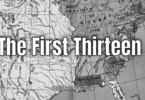Dover is the capital city of the state of Delaware, as well as the county seat of Kent County. The Dover Metropolitan Area encompasses all of Kent County, as well as nearby Philadephia (PA), Camden (NJ), and Wilmington (DE). Named by William Penn after the city of Dover in the parish of Kent, England, the city had a little over 35,000 residents as of the 2010 census.
The city was founded in 1683 by William Penn, with the intention of it being the location for the court for Kent County, which had been newly established at that time. Kent County was part of what was known back then as the “Lower Counties on the Delaware River.” In 1717, the layout of the town of Dover was officially established by the Delaware General Assembly, and the capital of Delaware was moved to Dover from New Castle sixty years later. The rationale for the move was that Dover had a central location that provided it with safety from British raiders on the Delaware River during the American Revolution.
The state capital was moved several times after that, temporarily relocating to Wilmington, New Castle, and Lewes (twice), before being permanently established at Dover in October of 1781. The Green in Dover, which is the city’s central square, was the site of several American Revolution troop reviews, rallies, and other patriotic public gatherings during that time, and is still the most important part of Dover’s historic district. The Delaware Supreme Court and the Kent County Courthouse are both located on the Green in Dover.
Dover was a stop on the Underground Railroad during the time of slavery because it was close to Maryland (a slave state) as well as Maryland, Pennsylvania, and New Jersey (free states). A large community of Quakers, who were abolitionists, also lived in Dover at that time and supported the emancipation movement. While Delaware itself was a slave state until the early 1800s, Dover had only a few slaves who actually lived in the city. However, those few who were slave owners in Dover supported slaver and saw to it that the state kept it legal.
Today, there is an Amish community just to the west of Dover that has nine church districts and approximately 1,650 people belonging to it. The Amish came to Dover (and Kent County) in 1915, and there are several Amish-owned businesses there. Most of them sell items like Amish food, furniture, textiles, and crafts to locals and tourists. There is an Amish Country Bike Tour there every September, which is one of Delaware’s biggest cycling events. However, commercial and residential development on the outskirts of Dover in recent years has pushed some of the Amish out of their traditional territory, and fewer of them live in the area now than previously.
Dover is also home to a number of other famous annual events and cultural attractions. As an example, NASCAR races are held there two weekends each year, which brings about 65,000 people to town. These NASCAR tourists bring welcome additional patronage and traffic to local Dover businesses. The Dover Downs Hotel and Casino has also increased tourism to Dover, and, along with NASCAR, has brought millions of dollars of additional income to Dover’s economy.
Other events and attractions in Dover include the Firefly Music Festival, which is held in Dover every summer since 2012. The Schwartz Center for the Arts, which used to be the Dover Opera House (built-in 1904) hosted performances by the Dover Symphony Orchestra, ballet companies, and classic films until 2017 when its declining economic prospects forced it to close.
The Children’s Theater, Inc. of Dover and Kent County, which is a non-profit theater group for kids, is located in Dover. The Delaware State Library is also there, as is the Delaware State Museum, and the Delaware State Archives. All are open to the public for research and browsing.
As one of the fastest-growing areas in Delaware, thanks mostly to the city’s low cost of living, Dover is the home of the state’s largest employer—the state of Delaware. The state government’s bureaucracy is located largely in and around Dover. However, since Dover is not the state’s largest city, some of the offices of the state government are located elsewhere, such as the Office of the State Attorney General, which is located in Wilmington.
Employment opportunities are an important part of the Dover economy. In addition to the state government, Dover Air Force Base is another major employer in the city. Kraft Foods and Procter & Gamble each have manufacturing plants in Dover (the Kraft plant is the one that manufactures Jell-O, and has since 1964, while the Procter & Gamble plant manufactures Pampers Baby Fresh Wipes). ILC Dover is another big employer that makes fabrics for the military and space exploration; it is also the biggest and most important contractor for the Apollo and Skylab spacesuits and is the spacesuit assembly plant for the Extravehicular Mobility Unit of the Space Shuttle.
In addition to these major local employers, Dover also has many local and national retailers and restaurants within its borders. The Dover Mall is the only shopping mall in the area.
Dover has a pleasant climate that makes it attractive to visitors and residents alike. With hot summers and mild winters, temperatures there rarely reach extremes. In the winter, especially, the normally chilly Mid-Atlantic state temperatures are moderated by nearby Delaware Bay and the Appalachian Mountains. There is little snow there, with only around fifteen inches each season, and when it does snow, it is usually sporadic and light. Spring and autumn are similar to each other in temperature there, though spring is wetter than autumn, and autumn has the famous changing of the color of the leaves that people come from miles around each year to witness.
Dover is a unique city with a long and interesting history that makes it the perfect location for the state capital of Delaware.






